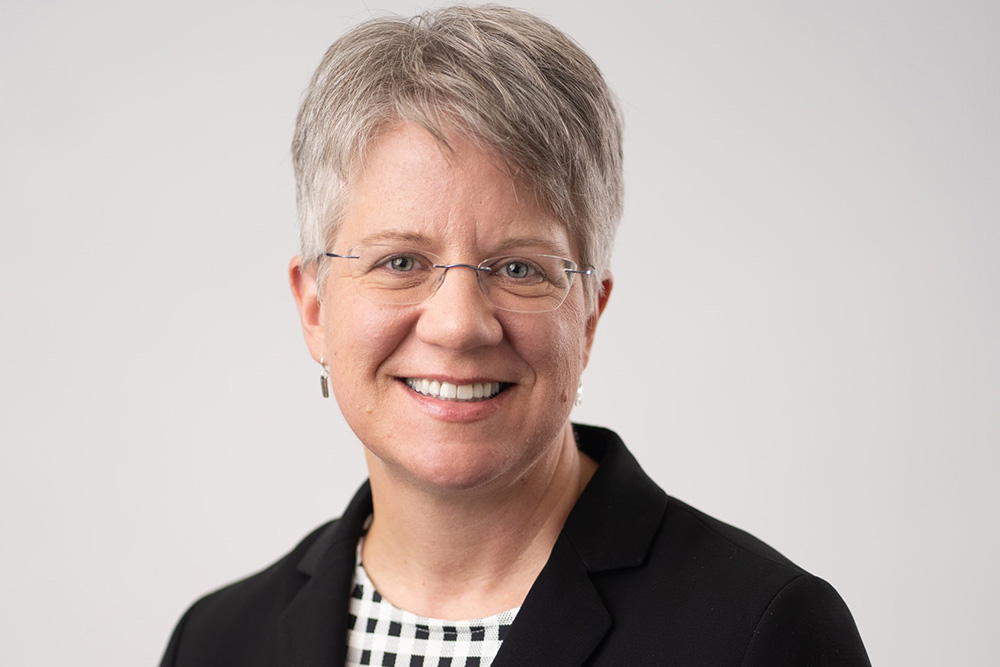
A massive open online course (MOOC) designed by Wendy Looman, a faculty member for ICI’s Minnesota Leadership Education in Neurodevelopmental and Related Disabilities (MNLEND) program, focuses on families with young children, and how elements of their environment, such as housing or access to nutritious foods, influence their outcomes.
The course is part of a Coursera specialization created by Karen Monsen and Daniel Pesut, both of the University of Minnesota’s School of Nursing. The specialization was recently listed as one of the 25 most popular free university courses by Class Central, a provider of online course listings. Looman, who chairs the school’s Child and Family Health Cooperative, said the Coursera series focuses on how to use data to create action related to the social determinants of health.
“This course has been a great way to get this content out to a really wide readership, both internationally and among people who wouldn’t typically have access to college-level classes,” Looman said. Coursera is one of the largest online learning platforms, with about 92 million registered users as of 2021.
“All of these issues are ones that resonate with the principles of the LEND program,” Looman said. “It’s thinking systemically about children’s health. One example is public housing. A family can do all it can to keep a child healthy, but if the landlord doesn’t keep the building up to code or there isn’t a policy protecting air quality in that building, that family has very little ability to change that. If a family experiences racism, or lacks access to healthy food, or has challenges getting time off work to attend school functions, all of that affects a child’s health.”
And while the course is directed at all families, these factors are amplified for families of children with disabilities, Looman said.
It was no surprise to Rebecca Dosch Brown, ICI’s interdisciplinary education director, that the course is so popular.
“The MNLEND fellowship has been very fortunate to have Wendy as part of its core faculty,” Dosch Brown said. “She brings both thoughtfulness and cultural responsiveness to the forefront when teaching fellows the research-based approaches to improving systems of care for families and children with chronic health care needs. Her contributions create meaningful career opportunities for fellows that also make a real difference for families.”
Throughout her career, Looman has focused on health as something that goes far beyond a single individual.
“It’s about the role of professionals in helping families navigate the complex systems around them,” she said. “We have an obligation to understand this in the nursing field, and our students go out into family homes to learn what it’s like to raise a child. We help future providers be more aware of what goes into the family experience.”
Field inquiry, in fact, is what attracted Looman to MNLEND.
“Every time I talk with LEND students, I’m just so impressed by the good work they are already doing in the world and they just get this systems approach,” she said. “This is a collection of people who largely are already passionate family advocates. I wish more people could go through this program.”
Getting more attention for the ideas in the course couldn’t come at a better time, when health care professionals are dealing with nursing shortages, the lingering effects of the pandemic, and the expanding roles nurses are assuming.
“We become so specialized and fragmented that we can forget the voice of the people we are doing this work to help,” she said. “Our skills in listening and being present are so important. It’s the biggest message I try to give to all my students.”



